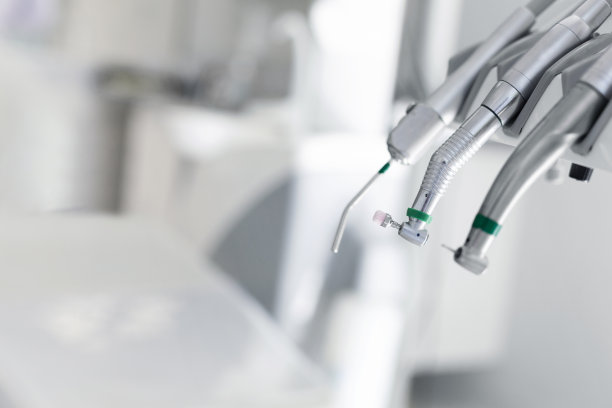The Importance of Extracting a Tooth for Maintaining Overall Dental Health and Preventing Future Complications
Summary: Tooth extraction may seem like a daunting procedure, but it plays a crucial role in maintaining overall dental health and preventing future complications. This article elucidates the significance of tooth extraction by exploring its benefits, including the prevention of oral diseases, alleviation of pain, enhancement of aesthetic appearance, and facilitation of orthodontic treatment. Each of these aspects not only underscores the importance of timely extractions but also highlights how they contribute to a healthier mouth and body. In essence, understanding these variables can empower individuals to make informed decisions regarding their dental care, ultimately leading to improved long-term oral health.
1. Prevention of Oral Diseases

One of the primary reasons for tooth extraction is the prevention of oral diseases. Decayed or damaged teeth can become a breeding ground for bacteria, leading to infections that may spread to surrounding tissues. Removing a problematic tooth not only halts the progression of decay but also reduces the risk of perio-dontal disease and other associated health problems.
Furthermore, the extraction of a decayed tooth can prevent the spread of infection to the bloodstream, a potentially life-threatening condition known as bacteremia. Maintaining a healthy oral environment is imperative for overall health; thus, tooth extraction can be a proactive measure in preventing complications associated with untreated oral diseases.
Additionally, impacted teeth—a common occurrence in wisdom teeth—can cause severe pain and dental misalignment. Extracting such teeth can preemptively address these issues before they escalate, allowing for a healthier mouth without the complications of chronic infections.
2. Alleviation of Pain and Discomfort
Tooth extraction is often a necessary procedure for alleviating severe pain that arises from various dental issues. Teeth that are severely infected, fractured, or impacted often cause significant discomfort, interfering with daily activities such as eating and speaking. By removing these troublesome teeth, patients experience immediate relief and can return to a more comfortable lifestyle.
Moreover, the pain associated with dental infections can extend beyond the affected tooth, potentially resulting in headaches, jaw pain, and facial swelling. Extracting the problematic tooth alleviates these symptoms, allowing individuals to experience not only localized relief but also an overall enhancement in their quality of life.
Furthermore, the mental burden of constant dental pain can lead to anxiety and stress, compounding the patients discomfort. A successful extraction can eliminate these emotional strains, providing a clearer mind and improved well-being. In essence, the alleviation of pain is a significant motivator for individuals to consider tooth extraction as a viable solution to persistent dental complications.
3. Enhancement of Aesthetic Appearance
Tooth extraction also plays an essential role in enhancing a persons aesthetic appearance. Missing teeth can greatly impact one’s smile, leading to decreased self-esteem and confidence. In cases where a tooth is severely damaged beyond repair, extraction may be the first step towards a more aesthetically pleasing smile.
Many individuals opt for dental implants or bridges following an extraction, which can closely resemble natural teeth. By filling gaps left by missing teeth, these solutions not only restore functionality but also provide a beautiful and engaging smile, enhancing one’s overall appearance.
Additionally, a balanced smile contributes positively to one’s social interactions and professional presence. People often feel more inclined to smile and engage with others when they are confident in their appearance. Thus, the extraction of problematic teeth can mark the start of a transformative journey toward a more confident self-image.
4. Facilitation of Orthodontic Treatment
Tooth extraction is sometimes essential for facilitating orthodontic treatment, particularly in cases of overcrowding. When there isnt enough space in the mouth for teeth to align properly, orthodontists may recommend extracting certain teeth to create room for adjustments. This is crucial for achieving optimal alignment and bite correction.
Furthermore, removing specific teeth can also enhance the overall effectiveness of orthodontic appliances. For instance, in cases where wisdom teeth are impacted, their extraction prevents them from pushing against adjacent teeth and disrupting progress during treatment.
In many cases, successful orthodontic treatment leads to not only an improved smile but also to better oral health by ensuring that teeth are properly aligned, making them easier to clean and maintain. Thus, the role of tooth extraction in orthodontics cannot be understated, as it often serves as an integral step towards achieving a functional and beautiful smile.
Summary:
In conclusion, extracting a tooth is more than just a last resort; it is a crucial step in promoting overall dental health and preventing future complications. From preventing oral diseases to alleviating pain, enhancing aesthetics, and enabling effective orthodontic work, tooth extraction serves multiple essential purposes that contribute to lasting oral wellbeing.
Understanding when and why to consider tooth extraction can empower individuals to make informed decisions about their dental care. Taking action sooner rather than later can lead to improved health and quality of life, underscoring the importance of maintaining regular dental check-ups.
This article is compiled by Vickong Dental and the content is for reference only



